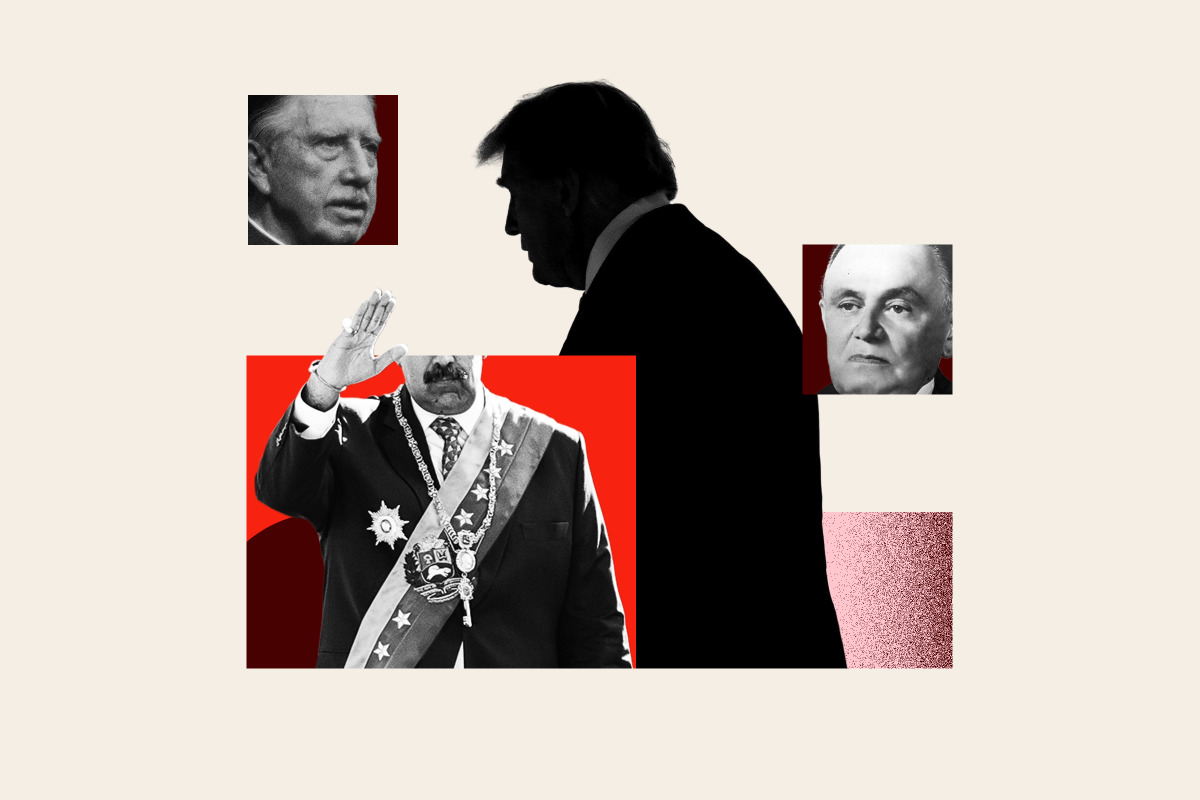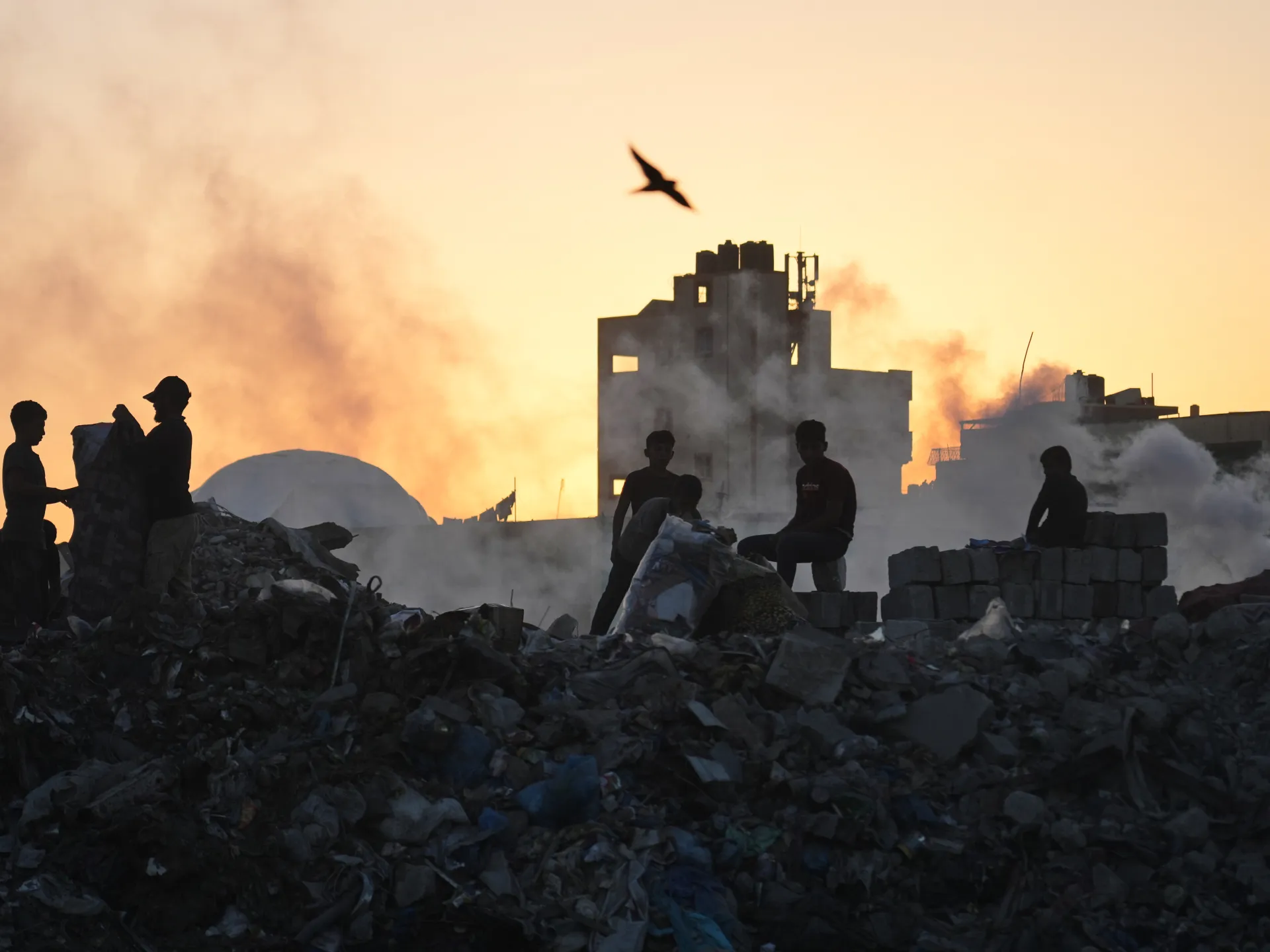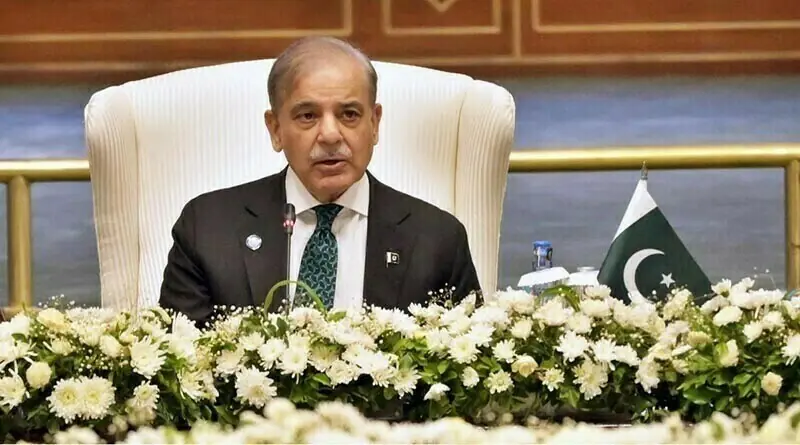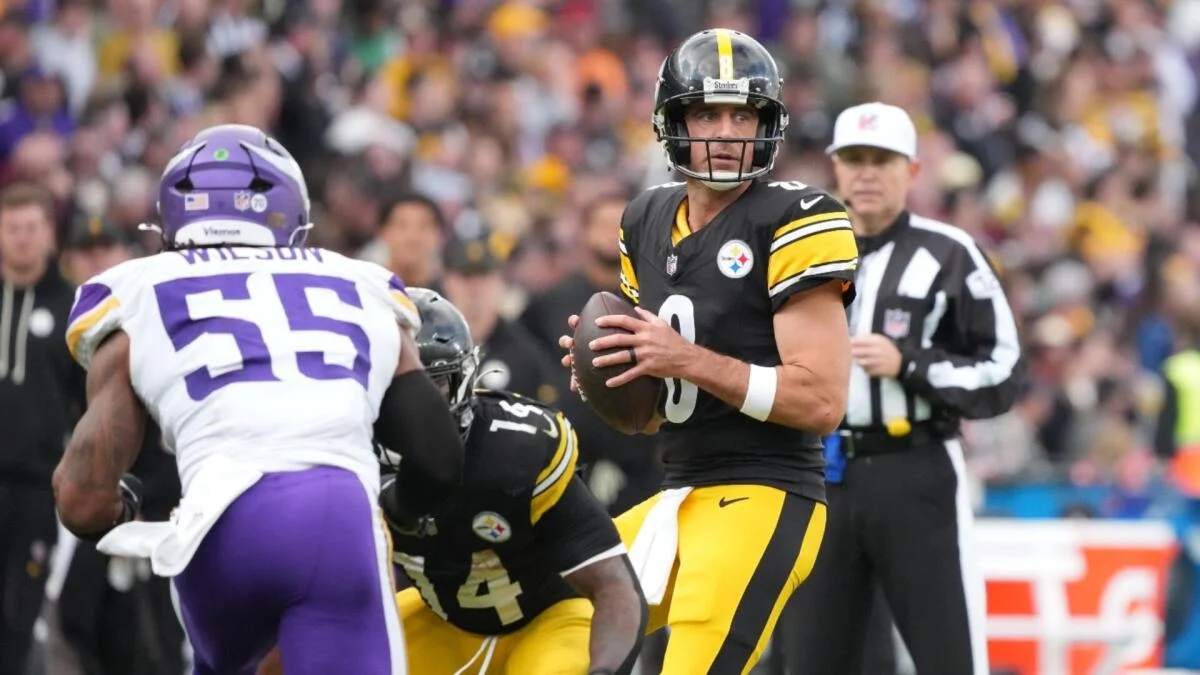Copyright Newsweek

President Donald Trump's intensifying threats toward Venezuela, accompanied by an unprecedented campaign of strikes against suspected drug traffickers at sea, mark the dawn of a new era of U.S. intervention in the Western Hemisphere. But the White House's actions also follow an extensive history of U.S. meddling across the neighboring region, including in South America, where Washington has over the past century backed coups, purges and political interference on various levels. And while the U.S. has since enjoyed largely cordial ties with much of the continent, this legacy continues to elicit controversy due to its lasting consequences. Today, these debates have been rekindled by the advent of Trump's hardline approach, viewed by some as a "MAGA Monroe Doctrine," which a number of experts say risks repeating past follies and bringing new uncertainties, even if the administration's tactics find some partners among South America's right-wing political forces. "If someone can find a positive result of any of these interventions, whether it be in the first third of the 20th century or during the Cold War, I'd be hard pressed to do that," Stephen G. Rabe, emeritus professor of history at the University of Texas at Dallas, told Newsweek. Newsweek has reached out to the U.S. State Department for comment. A New Great Power Emerges U.S. interest in South America began early on in the history of the nation, with the 1823 declaration of then-President James Monroe's doctrine of pushing European powers out of the Western Hemisphere widely viewed as a major turning point. The Monroe Doctrine was welcomed by independence leaders in South America, including Simón Bolívar, who successfully led the liberation of modern-day Colombia, Venezuela, Ecuador, Peru, Panama, and Bolivia from the Spanish Empire. But while Bolivar's efforts are still widely celebrated today—including in Venezuela, officially known as the Bolivarian Republic of Venezuela following the Bolivarian Revolution led by President Nicolás Maduro's predecessor and mentor, Hugo Chávez—views of Washington's role grew more divisive as the emerging superpower began to exert its own sphere of influence. The first major theater emerged at the turn of the 20th century in Panama, a nation straddling Central and South America that seceded from Colombia in 1903 with the backing of the U.S. In exchange for sending warships to back the independence bid, Panama granted the U.S. an open-ended lease for construction of what would become the Panama Canal, a crucial corridor allowing transit between the Atlantic and Pacific Oceans that was completed in 1914. The U.S. directly controlled the Panama Canal until 1999, when it was handed over to Panama as part of a treaty vowing to maintain its permanent neutrality 10 years after a U.S. invasion ousted the country's formerly Washington-aligned government. This agreement has been subject to criticism by Trump, who has called for the U.S. to retake the waterway, even threatening the potential use of force toward this end. Washington previously made good on such threats in the regions surrounding the Panama Canal, as the U.S. embarked on a series of military interventions and occupations of Nicaragua, Haiti and the Dominican Republic between 1915 and 1916—all of which Rabe said was rooted in ensuring dominance over the Panama Canal periphery. "Most of those interventions were to provide order and stability in those countries in an effort of what was perceived to be unstable countries or countries that weren't respecting U.S., investments, etc., but all of these things funneled back to the Panama Canal," Rabe said. "What the U.S. worried about was that any instability, if the Latin American nations or the Caribbean or Central America did not pay their debts to the Europeans, that the Europeans might intervene, and that would threaten the U.S. Panama Canal." He added: "So, much of the first third of the 20th Century was about the Panama Canal and making the Caribbean basin an American Lake that it was a secure and stable region, and therefore commerce could go through the increasingly important Panama Canal." Cold War Crises With World War II having redefined the transatlantic relationship with European powers, leaving much of them now aligned with the U.S., a new foe emerged in the Soviet Union and fears over the spread of its communist ideology. After Cuba's 1959 revolution resulted in a communist-led government just 90 miles off the coast of Florida, the U.S. doubled down on its campaign to suppress leftist sentiments across Latin America, often through covert means. One of the major events to follow in South America was the 1964 coup that ousted Brazil's left-wing President João Goulart and began a decadeslong period of military rule, led first by President Castelo Branco. The plotters received extensive aid from the U.S., where plans were also drawn up to provide military support should the upheaval devolve into a civil war. Another leftist would not lead Brazil until the 2003 election of Luiz Inácio Lula da Silva, who is once again the nation's head after winning the 2023 election. In 1973, another South American coup was staged in Chile, where socialist President Salvadore Allende was overthrown by a group of military officers led by General Augusto Pinochet, who would rule until 1990. The extent of the U.S. role in the affair remains subject to debate, though the CIA has since acknowledged that it was aware of the plot and declassified documents indicate then-President Richard Nixon and Secretary of State Henry Kissinger had at least long been rooting for Allende's downfall. The coup is sometimes referred to as "the other 9/11," both due to its coincidental date of September 11 and the national trauma that ensued. Brazil and Chile, under their post-coup governments, would become key members in the so-called "Operation Condor," a concerted campaign of targeting leftist movements across South America. U.S.-backed, right-wing governments that came to power following Cold War-era coups in Argentina, Bolivia, Ecuador, Paraguay, Peru and Uruguay also joined in the anti-communist front. "What were the legacy of those operations? My God, particularly in South America, it was a disaster, for Chile post-1973 under General Pinochet, with widespread human rights violations," Rabe said. "The intervention in Brazil in 1964 led to the Brazilians themselves intervening, often at the best of the United States, in Uruguay, encouraging the Argentine military to strike, and playing a role in the overthrow of Salvador Allende in Chile." He added: "And this, of course, led to wholesale human rights violations in countries such as Brazil, Uruguay and, particularly, Argentina, where over 30,000 people were murdered in the so-called guerra sucia [dirty war]." A Triangle of Turbulence Beyond South America, the U.S. also stepped up operations across Central America in the 1970s and 1980s in an even more heavy-handed fashion. In Nicaragua, the U.S. backed so-called "contra" rebels—including with funds acquired by illicitly selling arms to Iran—against the socialist Sandinista government; in El Salvador, the U.S. aided the ruling junta against the left-wing guerilla Farabundo Martí National Liberation (FMLN) Front; and in Guatemala, where a CIA-backed coup in 1954 had paved the way for U.S. Cold War-era clandestine operations in Latin America, the U.S. supported the state against an array of leftist insurgent forces. Each of these civil wars ended in peace agreements that paved the way for peaceful elections, yet insecurity and economic woes continue to plague the three nations. Meanwhile, Honduras, a staunch right-wing ally of the U.S. throughout this period, managed to avoid an all-out war and instead served as a hub for U.S. operations. Washington, meanwhile, provided substantial assistance to government forces in stamping out dissident leftist groups during the Cold War and remains a suspect in later playing a behind-the-scenes role in a 2009 coup, that rocked a nation already grappling with soaring crime rates and narcotics trade. The ramifications of past U.S. policy in the so-called "Northern Triangle" have also fueled some of the most pressing domestic challenges, such as drug trafficking, the proliferation of gangs and large-scale migrant flows, which are at the core of Trump's turn toward a tougher strategy south of the border. "The legacy of these policies can be felt in many ways," Alan McPherson, history professor and director of the Center for the Study of Force and Diplomacy at Temple University, told Newsweek. These include, according to McPherson, "setting patterns of immigration, for example from Central America to southern California, which has largely created the transnational gang problem that now plagues that region; and third, the continuation of a hemispheric division of labor, in which Latin Americans provide low-value raw materials and the United States transforms then into value-added finished goods." The Left-Right Divide The historical experience with U.S. intervention has also had profound effects on South America's political landscape that have, in part, served to bolster Maduro's talking points. McPherson noted how another consequence of such U.S. actions was the proliferation of "a widespread suspicion behind collaboration with Americans, otherwise known as anti-Americanism, which makes nationalism the obvious strategy of dictators such as Maduro." Juan Pablo Scarfi, assistant professor of international relations at the Catholic University of Chile's Institute of Political Science, also pointed to the far-reaching impact across South America of previous U.S. policies in the broader region. "The legacy of these U.S. assertions of hemispheric supremacy and interventions have been driven primarily by imaginary ambivalent perceptions of a threat for the whole hemisphere and the possibility of creating common shared understandings of the Monroe Doctrine as an ideal to safeguard the hemisphere as a whole under U.S. leadership," Scarfi told Newsweek. He added: "This contributed to generating feelings of an imperialist threat that should forge anti-imperialist defensive alliances and at the same time attempts to construct shared instrumental tools under U.S. leadership to protect the continent as a mission shared by the U.S. and South America." Maduro, who took power in Venezuela after the death of Chavez in 2013, clearly falls into the category of those stoking anti-U.S. fervor and, for the first time, counts finds himself flanked by fellow left-wing governments in Brazil and Colombia. While these neighboring nations' ties with his socialist government are complex and far from constituting any coalition, Trump's threats have drawn stark warnings from Brasília and Bogotá. Fears among progressive leaders in South America are compounded by the influence of conservative and right-wing populist movements that perpetually wrestle with leftist rivals for power across the continent and have found an ally in Trump's outlook. "I think that the reactions across the region have created a much greater sense of unrest and alarm among progressive politicians and public opinion within the popular classes and the intellectual sphere," Scarfi said. "Because some leaders and political actors within the region, notably [President] Javier Milei in Argentina and the populist right-wing opposition in Brazil and Chile can potentially create hemispheric alliances with Trump that can be perceived as a threat to progressive and liberal values and democratic institutions." "The threat comes from within or at least it can emerge from hemispheric populist right-wing alliances," he added. "These democratic and republican traditions, which are quite strong and deeply rooted in South America, are beginning to mobilize and resist this potential and concrete U.S. and hemispheric threats to democratic institutions and traditions in South America." The Uncertain Future Trump has not explicitly expressed an intention to overthrow Maduro, who stands accused by the U.S. of both rigging elections and facilitating the flow of narcotics across the Americas. The U.S. leader previously sought to oust his Venezuelan counterpart at the onset of the country's presidential crisis in 2019, backing then-U.S.-recognized National Assembly leader Juan Guaidó in an ultimately failed bid to take power. Venezuela's opposition has since fragmented and attempts to negotiate a more inclusive election have repeatedly unraveled, even as the White House sought to incentivize the deal with granting licenses for U.S. oil companies and easing sanctions. Should Trump opt for a military approach, however, such an endeavor would prove unprecedented even in the face of the long history of U.S. interventions in the region. "The United States has never in Latin America occupied a nation as large in territory or with an army the size of Venezuela," McPherson said. "Should the Venezuelans take up arms and resist an intervention locally, Venezuela will look nothing like the relative cakewalk that was Panama in 1989." And while the military situation is vastly different between Panama, then commanding around 16,000 soldiers, and Venezuela, which boasts a standing army of around 100,000 personnel and the mobilization of some 4.5 million militia members, McPherson argued that he saw parallels between then-President George H.W. Bush's justification of the toppling of his Panamanian counterpart Manuel Noriega and Trump's threats to Maduro. "It worked in Panama, and I think Secretary [Marco] Rubio wants a sequel in Venezuela," McPherson said. "But again, Venezuela is not Panama, and decapitating its leadership might not be as easy." And even if a conflict were to emerge in Washington's favor, he warned that the ensuing instability and negative attitudes toward the U.S. that may consume the continent could prove a hefty price. "While many want Maduro gone, almost no one in Latin America wants that done at the hands of the U.S. military, partly for the terrible optics but partly because their country might be next," McPherson said. "Territorial integrity—absolute non-intervention—is a core principle in Latin American international relations, and a unilateral U.S. military intervention would be an unacceptable violation of that principle." Rabe came to a similar conclusion, arguing that such an intervention "would anger the Mexicans, would anger Brazilians, the Argentines, the Uruguayans, the Chileans, and would anger the even the Colombians," whose leader, President Gustavo Petro, the first leftist to ever hold the position, was slapped with U.S. sanctions Friday in a sign of souring ties. "There is nothing that Latin Americans hold most dear to their heart than the non-intervention principle when it comes to relations between Latin America and the United States," Rabe said.



